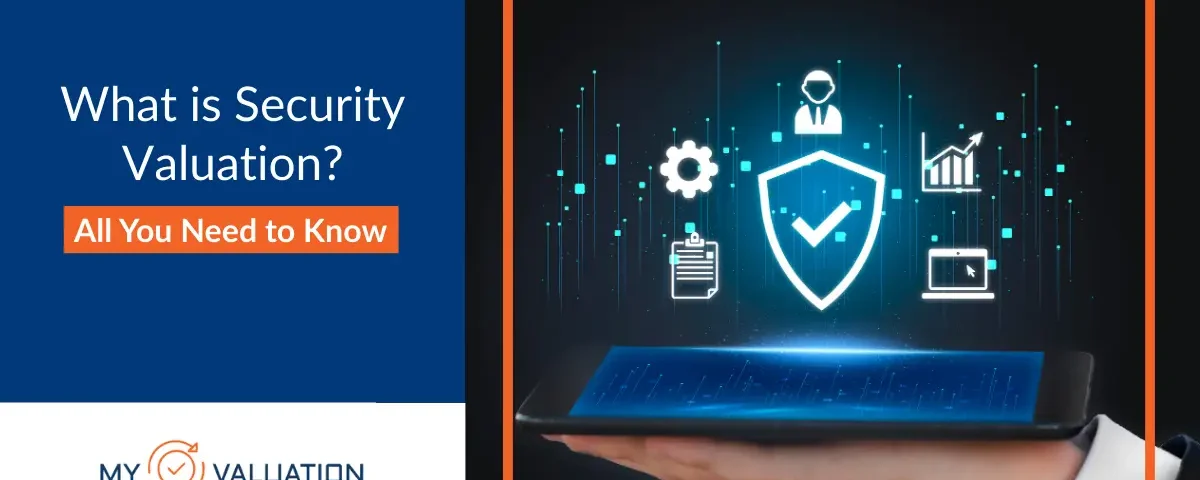In today's dynamic financial markets, determining the true worth of stocks, bonds, and other securities is both an art and a science. Security valuation serves as the root of investment decision-making, helping investors identify opportunities, businesses attract funding, and financial advisors guide clients through complex market conditions. Whether you're a startup founder seeking investment or an established business planning strategic move, understanding how securities are valued can make the difference between financial success and costly failures.
Understanding the Fundamentals of Security Valuation
Are you curious how investment professionals determine if a stock is overpriced or a bargain? Curious about how companies establish the right price for bonds or derivatives? The answer exists in security valuation – a critical process that forms the backbone of intelligent investment decisions and financial strategy.
Security valuation is much more than just math. It's an art and science that helps investors, businesses, and financial advisors determine the true worth of financial instruments. Whether you're a startup seeking funding, an established business planning expansion, or an investor looking to optimize your portfolio, understanding security valuation is essential.
In this detailed guide, we'll explore everything you need to know about security valuation – from basic concepts to advanced methodologies.
What Exactly is Security Valuation?
How do experts decide what a stock or bond is really worth?
Security valuation is the process of determining the fair market value or the true worth of financial instruments such as stocks, bonds, derivatives, and other investment vehicles. It involves analyzing various factors including financial statements, market conditions, economic indicators, and growth prospects to arrive at a reasonable estimate of value.
Think of security valuation as similar to buying a house. Just as real estate appraisers consider location, condition, and comparable properties, security valuation professionals examine financial health, industry position, and market sentiment.
The ultimate goal is to determine whether security is priced, undervalued, or overvalued in the marketplace. This assessment forms the foundation for making informed investment decisions, pricing new securities, or determining fair compensation in business transactions.
Key Features of Security Valuation
| Component | Description |
|---|---|
| Fundamental Analysis | Examining financial statements, business models, and competitive position |
| Technical Analysis | Studying price patterns, trading volume, and historical market data |
| Quantitative Modeling | Applying mathematical formulas and statistical tools to predict future values |
| Qualitative Assessment | Evaluating management quality, brand strength, and growth potential |
| Market Sentiment | Considering investor perception and behavioral factors affecting prices |
Why is Security Valuation Important?
What makes security valuation so important for businesses and investors?
Security valuation isn't just an academic exercise—it serves several critical functions in the financial ecosystem. Here's why it matters:
1. Informed Investment Decisions
Security valuation provides the analytical foundation for smart investment choices. By comparing a security's basic value to its market price, investors can identify opportunities for profit and avoid potentially costly mistakes.
For example, if valuation analysis suggests a stock is trading below its true worth, it may represent a buying opportunity. Otherwise, overvalued securities might signal a time to sell or avoid purchasing altogether.
2. Business Transaction Facilitation
When companies merge, acquire others, or divest assets, proper security valuation guarantees all parties receive fair compensation. It helps establish reasonable purchase prices and exchange ratios for stocks in corporate transactions.
This is particularly important for startups seeking investment, as accurate valuation helps founders secure appropriate funding without unnecessarily expanding their ownership stake.
3. Financial Reporting and Compliance
Many regulatory frameworks require businesses to value certain securities at fair market value for financial reporting purposes. Accurate security valuation guarantees compliance with accounting standards like IFRS and Indian Accounting Standards.
For publicly traded companies, proper security valuation practices are important for maintaining transparency with shareholders and meeting disclosure requirements set by SEBI and other regulatory bodies.
4. Risk Management
Understanding the true value of securities in a portfolio helps investors and businesses assess and manage their risk exposure. Valuation techniques can highlight potential changes and downside risks that might not be immediately obvious.
Professional valuation experts can identify hidden risks in complex securities, helping clients protect their financial interests in uncertain market conditions.
Common Types of Securities That Require Valuation
What different financial functions need valuation?
Various securities require different valuation approaches based on their unique characteristics:
1. Equity Securities
Stocks represent ownership interests in companies and are valued based on future earnings potential, dividend projections, and growth prospects. Both publicly traded shares and private company equity require thorough valuation analysis.
For startups in early funding stages, equity valuation takes on special importance as it determines how much of the company investors receive in exchange for their capital.
2. Debt Securities
Bonds, notes, and other debt instruments are valued by analyzing interest rates, credit quality, and the timing of future cash flows. The valuation process helps determine if the dividend compensates investors adequately for the associated risks.
Corporate bonds, government securities, and structured debt products all require specialized approaches to valuation that account for their unique features and risk profiles.
3. Derivative Securities
Options, futures, swaps, and other derivatives derive their value from original assets. Their valuation involves complex mathematical models that account for volatility, time rot, and the relationship with their underlying securities.
These sophisticated instruments often require advanced quantitative methods and specialized expertise for accurate valuation.
4. Hybrid Securities
Convertible bonds, preference shares, and other hybrid instruments combine features of debt and equity. Their valuation must account for both their current income characteristics and potential future value as equity.
These securities are particularly challenging to value due to embedded options and conditional features that affect their ultimate worth.
How Are Securities Valued? Popular Methodologies Explained
What methods do professionals use to determine security values?
Security valuation employs multiple methodologies, each with distinct strengths and applications:
1. Discounted Cash Flow (DCF) Analysis
DCF analysis estimates a security's basic value by projecting future cash flows and discounting them to present value using an appropriate rate. This forward-looking approach is widely used for stocks, bonds, and business valuation.
The method accounts for the time value of money, knowing that cash received in the future is worth less than the same amount received today. The discount rate typically reflects the security risk profile.
Present Value = Future Cash Flow / (1 + Discount Rate) ^n
Where n equals the number of years in the future when the cash flow occurs.
2. Relative Valuation Methods
These methods compare security valuation metrics to similar securities or industry specifications. Common ratios include:
- Price-to-Earnings (P/E) ratio
- Enterprise Value-to-EBITDA (EV/EBITDA)
- Price-to-Book (P/B) ratio
- Price-to-Sales (P/S) ratio
Relative valuation is popular because it's straightforward and provides context for current market conditions. However, it requires careful selection of comparable securities to be effective.
3. Asset-Based Valuation
This approach values securities based on the underlying assets' worth after subtracting liabilities. It's particularly useful for companies with significant tangible assets or those facing liquidation scenarios.
Net Asset Value (NAV) = Total Assets - Total Liabilities
This method works well for real estate investment trusts (REITs), financial institutions, and holding companies where asset values drive security pricing.
4. Option Pricing Models
Securities with option-like features require specialized valuation models such as Black-Scholes or binomial models. These account for volatility, time to expiration, and the probability of different outcomes.
These sophisticated models are important for valuing derivatives, employee stock options (ESOPs), and securities with embedded options like convertible bonds.
Key Factors That Effect Security Valuation
What elements impact the value of securities?
Multiple factors affect security values, creating both challenges and opportunities for valuation professionals:
Economic Factors
- Interest rates
- Inflation expectations
- GDP growth
- Currency exchange rates
- Business cycle position
These macroeconomic variables influence discount rates, growth projections, and risk premiums used in valuation models.
Industry and Market Factors
- Competitive dynamics
- Regulatory environment
- Technological disruption
- Market sentiment and investor behavior
- Industry growth trends
Understanding the broader context helps valuation professionals adjust their models to reflect industry-specific risks and opportunities.
Company-Specific Factors
- Financial performance and growth prospects
- Management quality and corporate governance
- Capital structure and dividend policy
- Competitive advantages and market position
- Intellectual property and intangible assets
These factors are particularly important for equity valuation, where company-specific characteristics drive much of the security value.
Risk Considerations
- Market risk
- Credit risk
- Liquidity risk
- Legal and regulatory risk
- Operational risk
Different securities face unique risk profiles, which must be properly counted and incorporated into valuation models through appropriate risk premiums.
The Security Valuation Process: A Step-by-Step Approach
How do professionals actually perform security valuation?
While methodologies may differ, the security valuation process typically follows these steps:
1. Define the Valuation Purpose and Scope
First, establish why the valuation is needed (investment decision, financial reporting, transaction, etc.) and what specific securities require valuation. This initial step shapes the entire approach.
Different purposes may require different valuation standards, levels of precision, and documentation requirements.
2. Gather Relevant Information
Collect financial statements, market data, industry research, economic indicators, and company-specific information needed for analysis. The quality of input data directly affects valuation accuracy.
For private companies and complex securities, this information-gathering phase may involve significant research and due verification.
3. Select Appropriate Valuation Methods
Choose valuation methodologies based on the security type, available information, and valuation purpose. Often, multiple methods are used to cross-validate results.
The selected methods should align with industry best practices and be appropriate for the specific security being valued.
4. Apply Valuation Techniques
Perform the calculations and analysis required by each selected method. This may involve:
- Forecasting future cash flows
- Determining appropriate discount rates
- Identifying comparable securities
- Adjusting for risk factors
- Analyzing financial ratios
This analytical phase requires both technical expertise and professional judgment.
5. Adjust Different Valuation Results
When multiple methods offer different values, settle these differences to arrive at a conclusion. This may involve weighted averages or professional judgment about which methods are most reliable.
Understanding why different approaches get different results often provides valuable insights about security's characteristics.
6. Document and Communicate Findings
Prepare a complete valuation report that explains the methodology, assumptions, limitations, and conclusions. Clear communication is essential for stakeholders to understand and trust the valuation results.
Professional valuation reports should be transparent about the factors considered and any uncertainties affecting the final value determination.
Common Challenges in Security Valuation
What difficulties do valuation professionals face?
Security valuation is complex and involves several common challenges:
1. Market Trends and Uncertainty
Rapidly changing market conditions can quickly make assumptions invalid. Valuation professionals must account for uncertainty and build appropriate buffers into their models.
Scenario analysis and sensitivity testing help address this challenge by showing how values might change under different future conditions.
2. Limited Information
For privately held companies or thinly traded securities, limited public information makes comparison challenging. Valuation experts must make reasonable assumptions based on available data.
This challenge is particularly important for startup valuations, where historical financial data may be minimal or non-existent.
3. Complex Securities and Structures
Sophisticated financial instruments with embedded options, possible features, or unusual terms require specialized expertise and advanced valuation techniques.
These complex securities often exceed simple valuation methodologies and require customized approaches.
4. Behavioral and Psychological Factors
Market prices often reflect investor psychology rather than fundamental value. Accounting for these behavioral factors requires experience and judgment beyond technical analysis.
Understanding market sentiment and behavioral finance principles helps valuation professionals interpret market signals more effectively.
When Should You Get Professional Security Valuation Services?
In what situations is expert valuation assistance most valuable?
While basic valuation concepts are accessible to many, professional valuation services provide important value in these scenarios:
1. Business Transactions
For mergers, acquisitions, divestitures, or capital raising activities, professional valuation guarantees all parties receive fair treatment and helps transactions proceed smoothly.
Independent valuation opinions carry weight in negotiations and can help resolve valuation disputes.
2. Regulatory Compliance
When securities valuation is required for tax purposes, financial reporting, or regulatory filings, professional expertise guarantees compliance with relevant standards and regulations.
This includes SEBI requirements, Companies Act provisions, and Income Tax Act compliance in the Indian context.
3. Complex Investment Decisions
When analyzing complex securities or large investments, professional valuation services help identify risks and opportunities that might be missed by less experienced analysts.
The cost of professional valuation is often justified by the potential to avoid costly investment mistakes.
4. Dispute Resolution
In shareholder disputes, partnership dissolutions, or legal scenarios, independent professional valuation provides credible evidence for courts and judges.
Expert valuation testimony carries significant weight in legal proceedings involving security valuation issues.
How My Valuation Can Assist with Your Security Valuation Needs
As registered valuers with IBBI and financial advisory experts, My Valuation offers professional security valuation services unique to Indian businesses and investors. Our certified professionals combine technical expertise with deep industry knowledge to deliver accurate, reliable valuations.
Our security valuation services include:
- Equity valuation for public and private companies
- Startup valuation for fundraising rounds
- Debt securities and fixed income instrument valuation
- Derivative and complex security valuation
- ESOP valuation for employee compensation programs
We understand the unique challenges of the Indian market and provide valuation services that align with local regulatory requirements while following to international best practices.
Conclusion
Security valuation combines technical expertise with experienced judgment to reveal the true worth of financial instruments. While understanding these principles is valuable, complex situations demand professional guidance. At My Valuation, our IBBI-registered experts deliver accurate, compliant security valuations according to Indian businesses and regulatory requirements.
Ready to get expert help with your security valuation needs? Contact My Valuation today. Our team of certified valuation professionals is standing by to provide a personalized consultation and help you make informed financial decisions.




